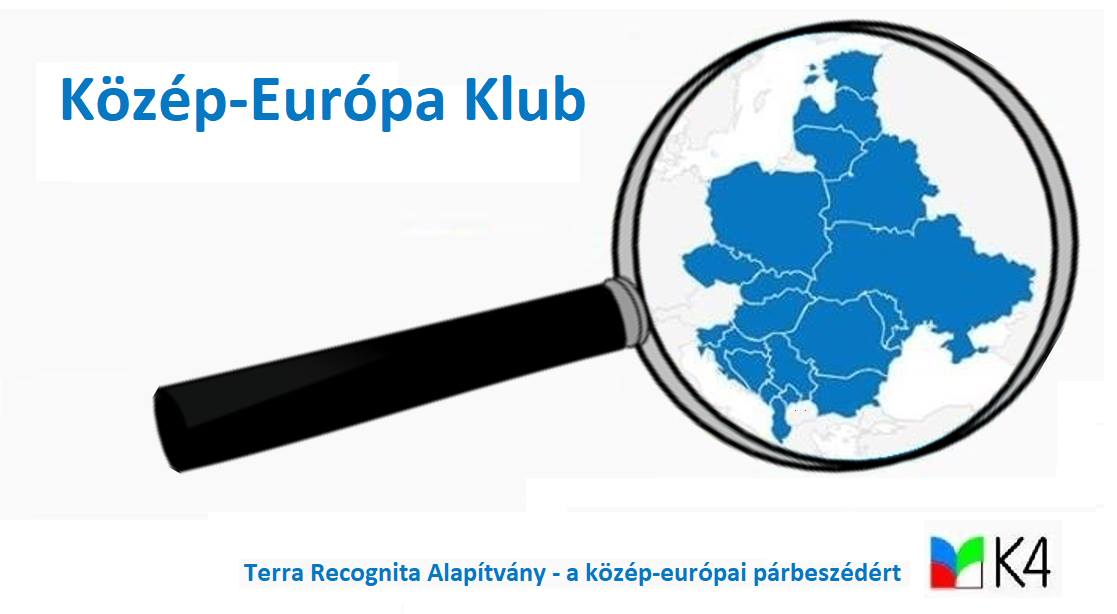 Is it possible in Hungary to operate media outlets only from crowdfunding? How can they get new readers, and is the Hungarian audience ready to pay for online contents? Raising our gaze further away, what Central European examples of new business models can be found, and how viable are they?
Is it possible in Hungary to operate media outlets only from crowdfunding? How can they get new readers, and is the Hungarian audience ready to pay for online contents? Raising our gaze further away, what Central European examples of new business models can be found, and how viable are they?
These and other similar questions were answered by journalists who gathered in Budapest at the first event of the Central Europe Club launched by Terra Recognita Foundation on April 15th. Behind the launch of the club there are two intentions: to bring together people interested in the region and to explore the most current issues of socio-economic transformation in the region.
The event with the title of ‘The bottom-up organized media: business and community building together?’ was moderated by István Kollai, assistant professor of the Corvinus University and coordinator of Terra Recognita Foundation. His discussion partners were Szilárd István Pap, editor of Mérce (Scale); Martin Bukovics, editor-in-chief of Azonnali (Instant) and István Dévényi, editor of Magyar Hang (Hungarian Voice). In this article, we look at the most essential topics of the discussion.
 As a result of Phase 5, we will have a free accessible online glossary in English, that helps to build a common knowledge base. Because of the novelty of the elaborated information and competences, there is no common framework of notions and terminology.
As a result of Phase 5, we will have a free accessible online glossary in English, that helps to build a common knowledge base. Because of the novelty of the elaborated information and competences, there is no common framework of notions and terminology.
The structure of the glossary follows the fields of the syllabi and the e-learning materials, therefore it includes the most important terms of data journalism, collaborative journalism, business models of journalism and ethical challenges connected to digitalization.
The entries that are available now:
| Collaborative journalism | Crowdfunding |
Fake news | Open data |
| Copyright | Data mining | Freemium | Public sphere |
| Cross-border journalism | Fact checking | Journalism education | Skills (journalistic skills) |
We will update the glossary continuously with other expressions!
 The technological developments emerging with new media had a huge impact not just on journalistic practise, but on the ethical aspects of journalism as well. The new challenges include issues like the increasing amount of fake news, dealing with hate speech in the comments, linking contents from other sources or how to handle anonymous sources. In parallel, media accountability and transparency become more and more essential.
The technological developments emerging with new media had a huge impact not just on journalistic practise, but on the ethical aspects of journalism as well. The new challenges include issues like the increasing amount of fake news, dealing with hate speech in the comments, linking contents from other sources or how to handle anonymous sources. In parallel, media accountability and transparency become more and more essential.
Ethical questions in the media
Fake news is the most prominent problem
The interviews revealed that the main ethical issues are more or less the same in all four NEWSREEL countries. Among them fake news is the most burning problem, moreover, in Romania and Hungary the phenomenon is in strong connection with political communication. Social media like Facebook are abounding in fake news and click baiting content, which is another problematic aspect of journalism ethics. Fact checking should be a priority, and we can find many good examples in Germany, where several media outlets and NGO have set up fact checking teams. Since 2017, Correctiv has partnered with Facebook to fact-check content shared on their network. In contrast, the only Hungarian fact-checking website is operated by the think tank of the governing party.
 In the works of contemporary journalists, the process of cooperation is gaining more and more importance. Without cross-border international collaborations, massive investigative projects like Panama and Paradise papers could not have been carried out. However, collaboration is also essential when project partners from different sectors of the labour market have to work together. In the NEWSREEL research report, we emphasise how collaborative journalism appears in the media landscape and the journalism courses of the universities of the partner countries.
In the works of contemporary journalists, the process of cooperation is gaining more and more importance. Without cross-border international collaborations, massive investigative projects like Panama and Paradise papers could not have been carried out. However, collaboration is also essential when project partners from different sectors of the labour market have to work together. In the NEWSREEL research report, we emphasise how collaborative journalism appears in the media landscape and the journalism courses of the universities of the partner countries.
Collaborative journalism in the media
The interviews highlighted that the term collaborative journalism is not widely used in the NEWSREEL countries, and there is no consensus about its meaning. According to Cristian Lupșa (Decât o Revistă), it is journalism made by several media entities together, in different forms; however these collaborations are not very common in Romania, and most of the journalists work individually. In Hungary, the role of cooperation becomes essential because the number of independent critical organs is continuously decreasing. Mostly independent editors like to participate in collaborative projects, but Attila Bátorfy (Átlászó) and Gergely Dudás (Politis) pointed out that everyone is keen to protect their territory, so international collaborations are often more successful than the Hungarian ones. This statement is also true in the case of Romania.
 New ways of financing journalism projects are one of the hottest topics in the contemporary media field. However, it is tough to find innovative business models that work successfully in the long run. Most of the media outlets try to combine traditional financial models with new ones. Some best-practices worldwide range from different advertising models, paid content, sponsorship and membership, to selling non-media products. The audience has a more significant role than ever, because they are not just consumers anymore, but can also appear as financers, for example in the case of crowdfunding. During Phase 1 of our project, we analysed new business models in the media field and the university curricula of Romania, Hungary, Germany and Portugal.
New ways of financing journalism projects are one of the hottest topics in the contemporary media field. However, it is tough to find innovative business models that work successfully in the long run. Most of the media outlets try to combine traditional financial models with new ones. Some best-practices worldwide range from different advertising models, paid content, sponsorship and membership, to selling non-media products. The audience has a more significant role than ever, because they are not just consumers anymore, but can also appear as financers, for example in the case of crowdfunding. During Phase 1 of our project, we analysed new business models in the media field and the university curricula of Romania, Hungary, Germany and Portugal.
Business models in the media
Difficulties in Romania and Hungary
In Romania, due to oligarchic influences, new business models become more and more prominent. In the Romanian market, newsrooms set up as NfPOs (non-for-profit-organisations) became very valuable - like RISE project and the Romanian Centre for Investigative Journalism. NfPOs produce professional reporting, and are financed on a non-profit basis, and are usually part of international networks. These organisations can also attract more support through crowdfunding.